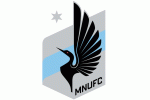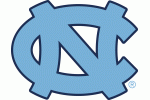Possible breakthrough earlier today.
NEW YORK TIMES
By HOWARD BECK Published: November 10, 2011
Pushing aside ultimatums, threats and caustic rhetoric, N.B.A. owners and players resumed labor talks Wednesday on what was shaping up as the day of reckoning in the four-month lockout.
Commissioner David Stern had set 5 p.m. as the deadline for the union to accept the league's standing proposal, or have it replaced with a much worse deal. The players rejected the offer on Tuesday, but signaled a willingness to accept the league's desired 50-50 split of revenue. The gesture got the parties back to the table, rendering the deadline moot, at least for the moment.
The meeting began at 1 p.m. at a Manhattan hotel, with small negotiating parties on each side. Stern was joined by the deputy commissioner Adam Silver, the San Antonio Spurs owner Peter Holt - who heads the league's labor-relations committee - and the league's top two lawyers, Rick Buchanan and Dan Rube.
Representing the union were the executive director Billy Hunter, the player president Derek Fisher, the outside counsel Jeffrey Kessler, the lawyer Ron Klempner and the union's outside economist, Kevin M. Murphy.
The union's offer to accept the 50-50 split was dependent on the owners compromising on some proposed free-agency restrictions. The league wants to ban luxury-tax-paying teams from executing sign-and-trade deals and from using the full midlevel exception, worth $5 million. The union fears that those rules, combined with a more punitive tax, would strangle the free-agent market.
The players' offer to accept a 50 percent share - down from 57 percent last season - represents a $280 million annual pay cut, and a projected $3 billion giveback over the course of a 10-year labor deal. The union is hoping that such a financial sacrifice will be enough to induce the owners to make a deal.
Although a faction of strident owners, most of them from small markets, has been dictating the N.B.A.'s position, Stern had the authority Wednesday to make the necessary compromises, according to a person involved in the talks on the league side. "David is going to do what needs to be done," the person said.
If the owners and players can find a compromise position on the free-agency rules and a few others, a deal is in reach. If the latest talks collapsed and Stern pulled the offer from the table, the 2011-12 season would be in severe jeopardy.
A disillusioned faction of players and agents has already been collecting signatures on a petition to dissolve the union, an extreme measure that would shift the battle to the courts and probably prolong the standoff.
So far, a month of games has been canceled. Based on the league's need for a four-week preparation period - to complete the deal, and then conduct free agency and training camps - games in the first two weeks of December are already threatened.
Although some difficult issues remained Wednesday, the gap between the owners and players was minuscule compared to where it was 21 months ago. The owners once proposed an immediate $800 million rollback in salaries, a reduction of the players' revenue share to 37 percent, a hard salary cap and the elimination of guaranteed contracts - demands that guaranteed a lengthy lockout.
Gradually, over the course of 21 bargaining sessions and 136 hours, the gap began to shrink. Most of the progress came in October, when the sides met 11 times.
Along the way, the owners dropped their demands for a hard cap, substituting a more punitive luxury tax, and abandoned the rollback in salaries and the elimination of guaranteed deals. After vowing they would never raise their offer beyond 47 percent, the owners finally proposed a 50-50 revenue split.
The players gradually moved from 57 percent to 54, then 53 and 52.5, before indicating a possible agreement at 50.
Two tactical moves, one from each side, brought everyone back to the table on Wednesday.
After talks broke down early Sunday, Stern pushed the players into a corner with an ultimatum: take the 50-50 deal, with all of its restrictions, by 5 p.m. Wednesday, or the owners would revert to a 47 percent offer, with a hard cap and salary rollbacks.
The players put the burden back on the owners on Tuesday by announcing they would take the 50-50 deal, provided the owners made the other concessions. Rather than wait for the 5 p.m. deadline, Stern agreed to call another bargaining session.
If the parties got a handshake agreement Wednesday, the next challenge would be selling the deal to their constituencies.
The hard-line owners - including Charlotte's Michael Jordan, Portland's Paul Allen and Cleveland's Dan Gilbert - opposed ever raising their offer beyond 47 percent and remained determined to gain as many restrictions as possible on payrolls and free agency.
It takes a simple majority - 16 of the 30 teams - to approve a new collective bargaining agreement. Stern probably has enough votes, but he would prefer an overwhelming majority given the stakes and the implications of a 10-year deal.
On the players' side, a number of influential agents have been highly critical of the union's negotiating stance, believing that the organization gave up too much, too soon. They demanded that the union not drop its offer below 52 percent. If the disenchanted agents and their players are upset with the terms of the deal, they could attempt to defeat it in the ratification vote and intensify the decertification effort.
REBOUNDS
Jeffrey Kessler, the chief negotiator for the players union, apologized Wednesday for making a racially charged comment about N.B.A. owners. Discussing the taut labor negotiations between the league and the union, he had told The Washington Post that the league was treating the players "like plantation workers."
"The comments that I made to The Washington Post Monday night took place quite late, at the end of a lengthy interview," Kessler said Wednesday. "And looking back, I believe that the words I used were inappropriate, and I am going to communicate my apologies for that to the N.B.A. and to the commissioner, who I will call and indicate that I apologize for that choice of words. The important thing for the parties is to get together and try to make a deal, and we have to put aside any other types of distractions."












